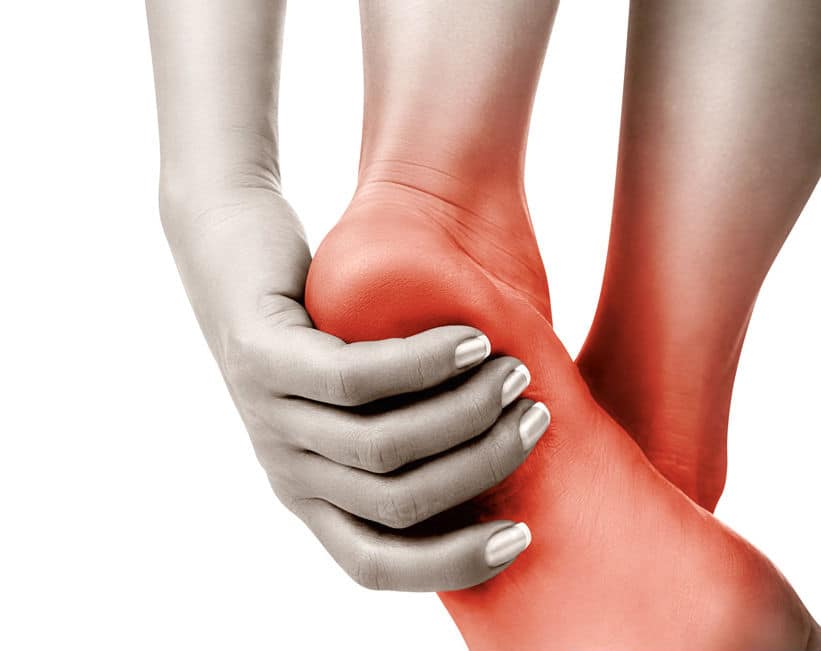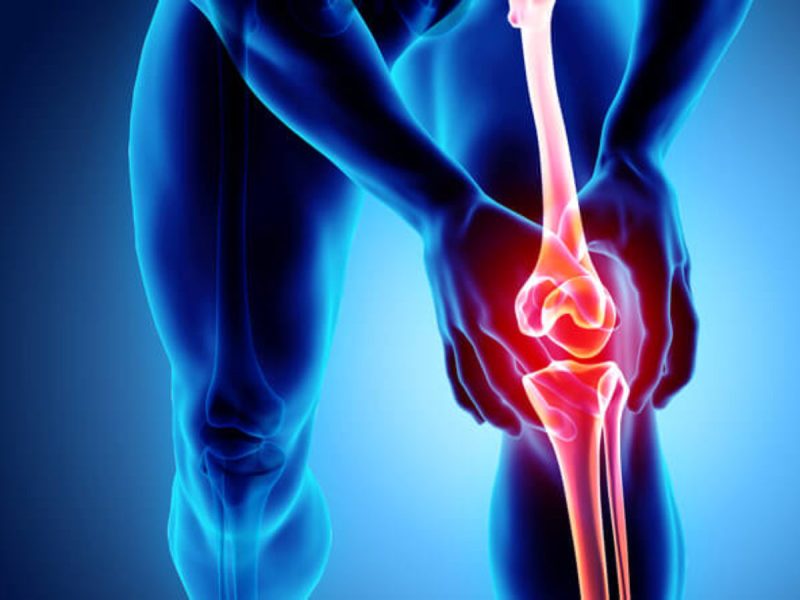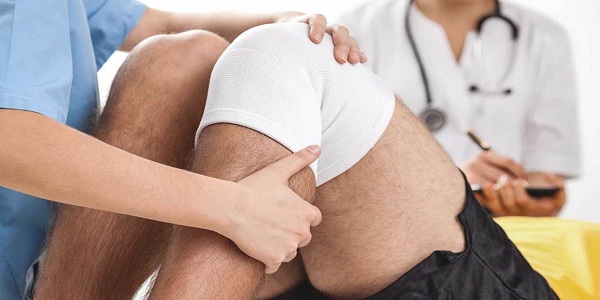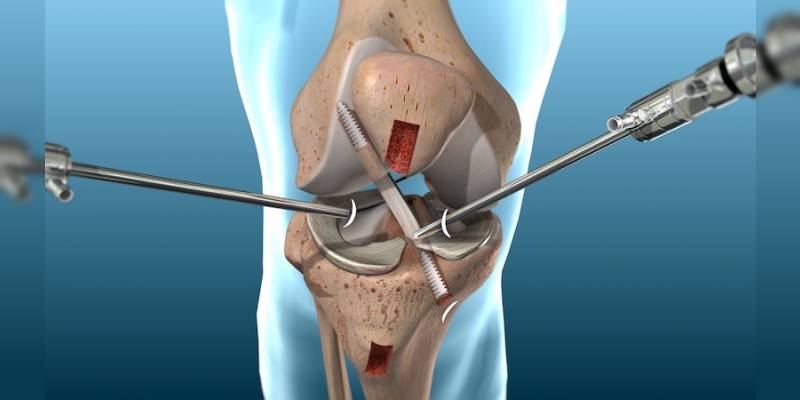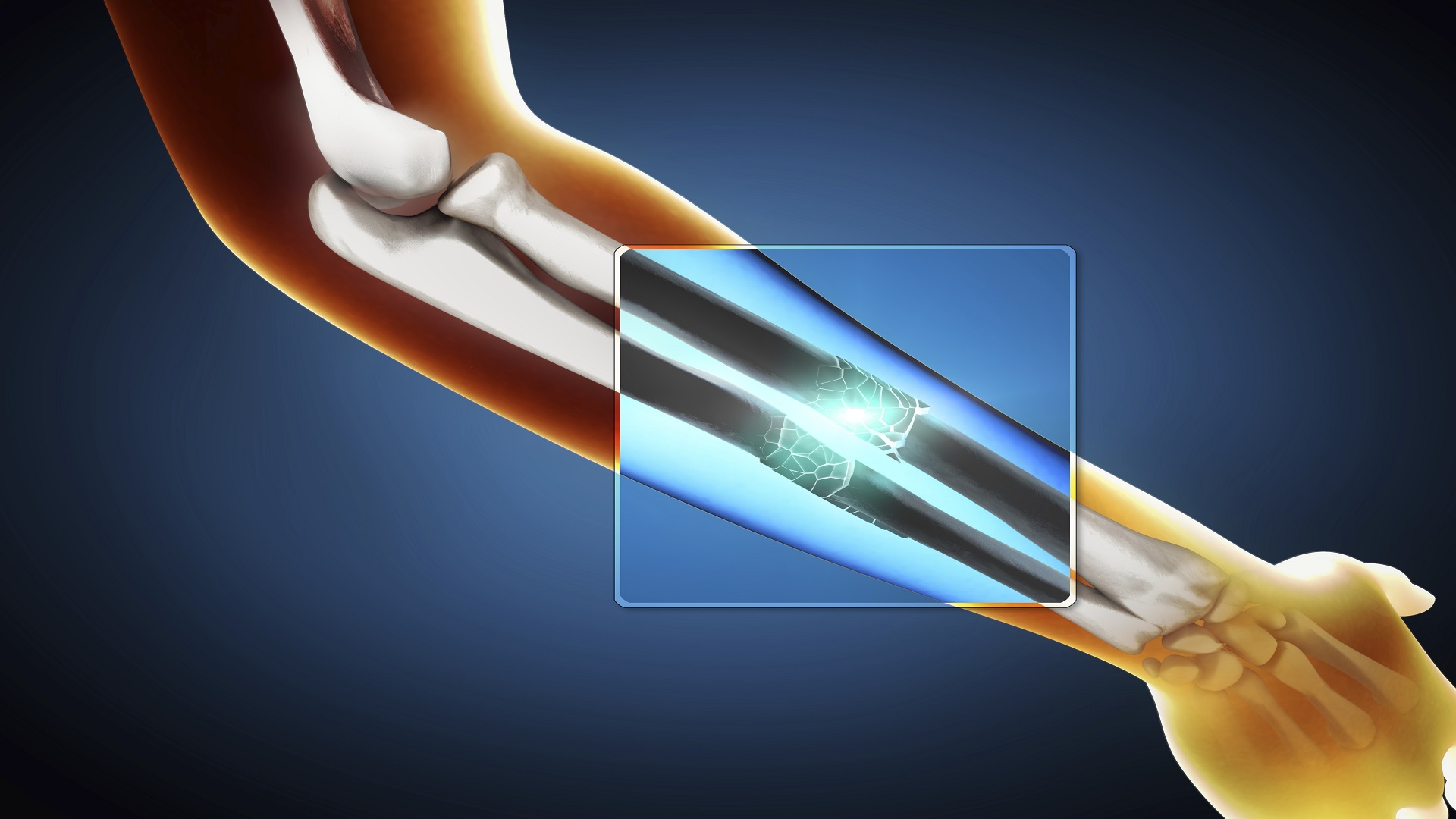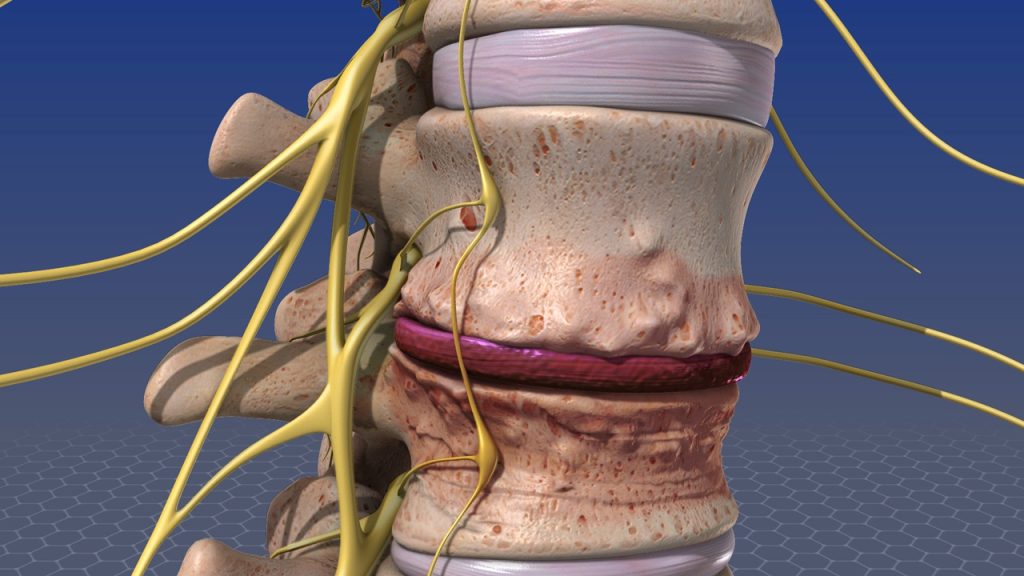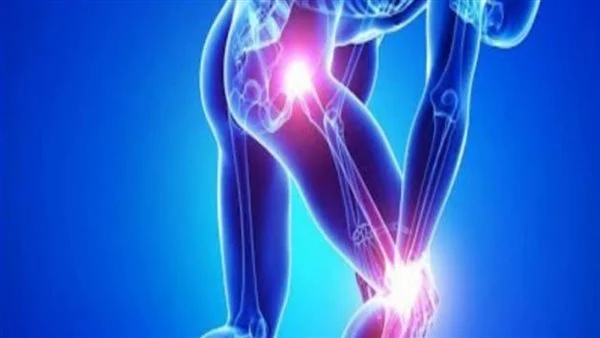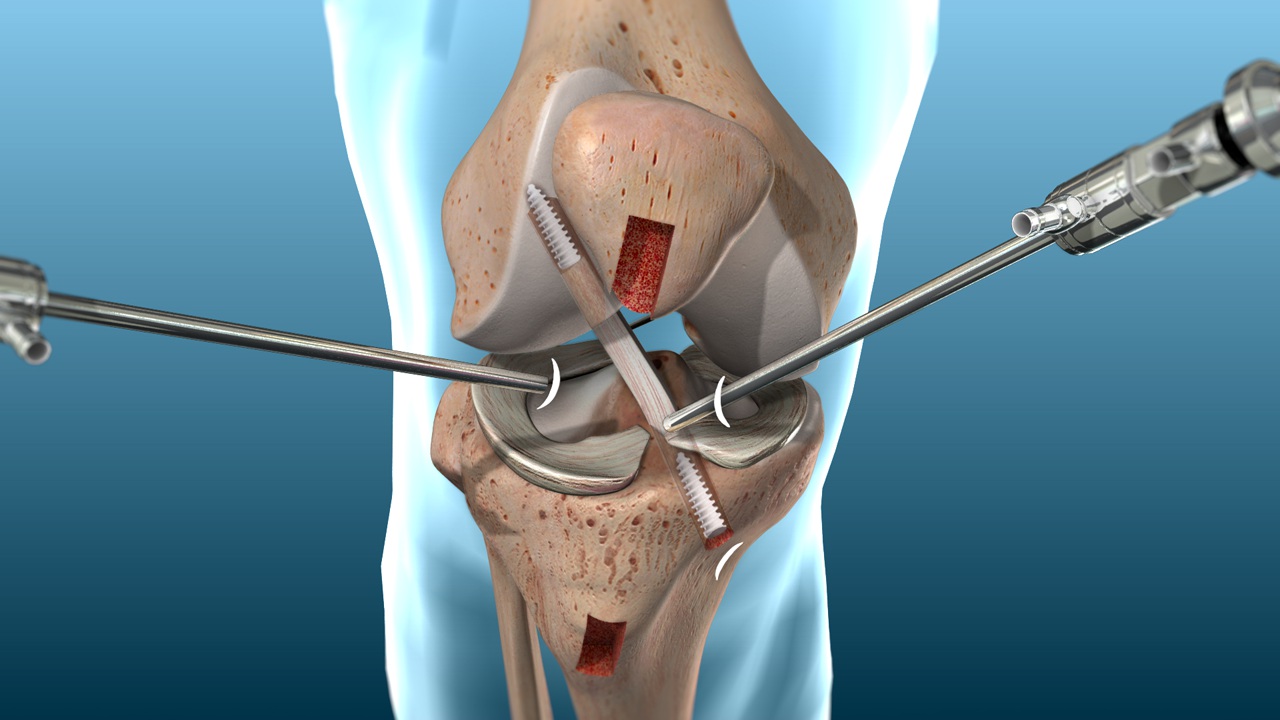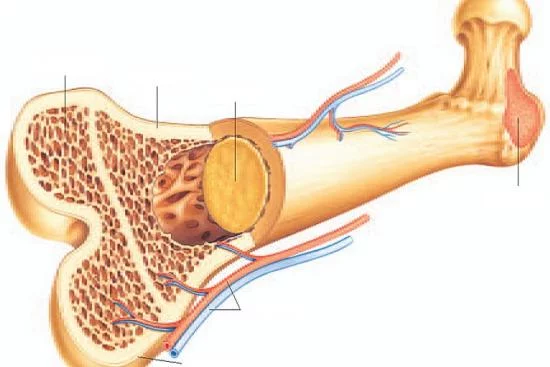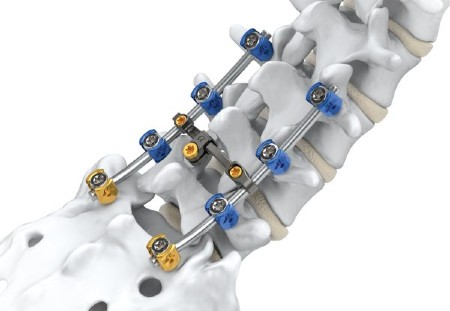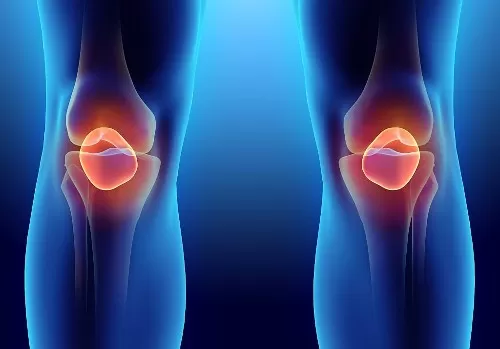Discover the Optimal Treatment for Knee Inflammation and Understand its Causes! Knee Inflammation Treatment
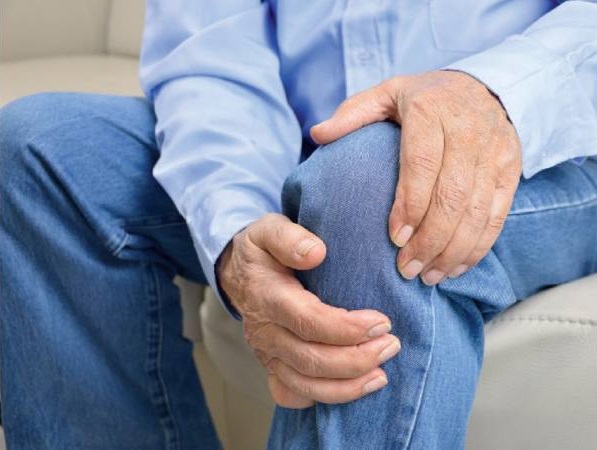
Treatment options for knee inflammation:
- Physical Therapy:
Physical therapy sessions can help strengthen the muscles surrounding the knee and increase flexibility.
- Medications:
Anti-inflammatory drugs and pain relievers can help alleviate pain and swelling.
- Local Injections:
Anti-inflammatory injections can be administered directly into the joint to reduce pain and inflammation.
- Surgery:
In severe cases and when there is significant damage to the knee, surgery may be the last resort.
- Rehabilitation Exercises:
Rehabilitation exercises can be an important part of treating knee inflammation to improve strength and movement.
- Preventative Measures:
Avoiding excessive stress and maintaining a healthy weight can reduce the chances of knee inflammation.
Treatment for knee inflammation depends on its cause and severity, and it is necessary to consult a doctor for proper assessment and treatment. Initial treatment includes rest and anti-inflammatory medications, but in more advanced cases, surgery may be necessary to restore normal knee function.
What is the Physical Therapy Treatment for Knee Pain?
Physical Therapy for Knee Pain: Restoring Health and Activity
Knee pain is a common issue that affects many individuals of various ages. The pain in the knee may result from an injury, inflammation, or tear in the tissues surrounding the joint. Regardless of the cause of the pain, physical therapy can be used to reduce pain and restore the function of the knee. In this article, we will discuss the importance of physical therapy and the techniques used to treat knee pain.
What is Physical Therapy?
Physical therapy is a medical specialty concerned with the evaluation and treatment of diseases and injuries that affect movement and physical function. Physical therapy focuses on improving strength and flexibility and strengthening the muscles around the affected joint.
The Importance of Physical Therapy for Knee Pain:
Reducing Pain: Physical therapy includes techniques that help reduce knee pain by relieving tension and pressure on the affected joint. Restoring Movement: Physical therapy aims to restore the knee’s natural range of motion and increase its flexibility. Strengthening Muscles: The therapeutic program includes targeted exercises to strengthen the muscles around the knee, which increases the stability of the joint. Improving Function: Physical therapy can enhance the knee’s function and its ability to withstand stress and perform daily activities better. Physical Therapy Techniques for Knee Pain:
Strength and Flexibility Exercises: Include exercises to strengthen the muscles surrounding the knee and exercises to improve flexibility to eliminate muscle spasms and increase the range of motion. Tissue Massage: Targeted massage for the knee can relieve pain and improve blood flow to the affected area. Stretching and Compression Techniques: Stretching and compression techniques are used to improve the flexibility of the tissues and relieve inflammation. Cold and Heat Therapy: Cold and warm applications can be used to relieve pain and reduce inflammation.
Medical Consultation:
Before starting any physical therapy program for knee pain, it is crucial to consult with a specialized physician or physical therapist. An accurate assessment of the condition is essential to identify the cause of the pain and determine the most appropriate treatment.
If you are suffering from knee pain, physical therapy can be an effective means to alleviate the pain and restore knee function. It is always preferable to consult experts and specialists to provide the appropriate care and assistance.
How Do You Know If You Have Arthritis?
Arthritis is a group of conditions that affect the joints and the tissues surrounding them, and it is common among individuals of various ages. Arthritis can result from diverse factors and can manifest in different forms and symptoms. In this article, we will discuss how to recognize the signs and symptoms of arthritis.
Common Types of Arthritis:
Before discussing the signs and symptoms, there are some important things to know about common types of arthritis:
Rheumatoid Arthritis: An autoimmune condition where the body attacks its own joints. Osteoarthritis (Degenerative Arthritis): Results from the wearing away of the joint’s cartilage covering. Gouty Arthritis: Accumulation of uric acid in the joints, causing acute inflammation. Juvenile Arthritis: Affects individuals in their youth and can be associated with intestinal intersitial inflammation.
Common Signs and Symptoms of Arthritis: Pain: Pain is one of the most prominent symptoms of arthritis. It can be sharp or chronic and usually increases with movement. Swelling and Inflammation: Inflamed joints often swell and become engorged. Stiffness and Movement Restrictions: Arthritis can cause difficulty in moving the joint normally. Morning Stiffness: A feeling of stiffness in the joints especially in the morning and after periods of rest. Fatigue and Malaise: Arthritis can be accompanied by fatigue and a general feeling of tiredness. Redness and Local Heat: Inflamed joints may appear red and feel warm to the touch. Diagnosis and Treatment:
If you are experiencing the above symptoms, you should consult a rheumatologist or a specialist in physical therapy. An accurate assessment of your condition and the necessary tests will be conducted to determine the type and cause of the arthritis you are suffering from. Treatment can include anti-inflammatory medications, physical therapy, and lifestyle changes.
If you suspect you may have arthritis, the first step is to consult a doctor to provide an assessment and appropriate treatment. Early diagnosis and treatment of arthritis can significantly help alleviate pain and greatly improve your quality of life.
What is the vitamin responsible for joint pain?
Vitamins and Joint Pain: The Role of Vitamins in Maintaining Joint Health Joints are vital parts of our body that contribute to enabling movement and daily activity. Pain in the joints can reduce the quality of life and the ability to perform daily activities normally. In addition to good care and a balanced diet, vitamins play a crucial role in maintaining joint health.
Understanding Vitamins and Their Role in Health:
Vitamins are organic compounds essential to the body, playing vital roles in many biological processes, including maintaining joint health. There are several important vitamins that play a role in supporting joint health:
- Vitamin D: Vitamin D is considered one of the main vitamins for overall health, especially joint health. Vitamin D helps with the absorption of calcium and phosphorus, two minerals important for bone and joint health. A deficiency in vitamin D can lead to weakened bones and increased risk of joint damage.
- Vitamin C: Vitamin C is an antioxidant and important for the health of joint tissue. Vitamin C helps in the formation of collagen, a key protein in cartilage and joint tissue. Adequate intake of vitamin C can help maintain joint flexibility and reduce wear and tear.
- Vitamin E: Vitamin E is another antioxidant that may play a role in reducing joint inflammation. Vitamin E helps protect joint tissue from oxidative damage, thereby potentially reducing the risk of developing joint diseases.
- Vitamin K: Vitamin K is important for maintaining bone and joint health. Vitamin K helps regulate the processes of calcium deposition in joint tissue, helping to prevent the formation of unwanted calcium deposits.
Dietary Sources for These Vitamins:
These vitamins can be obtained from a variety of dietary sources, including:
Vitamin D: Fatty fish such as salmon, and fish liver oil, and milk fortified with vitamin D. Vitamin C: Citrus fruits like oranges and lemons, and fresh fruits and vegetables such as red peppers and cabbage. Vitamin E: Vegetable oils like wheat germ oil and seed oils, and nuts. Vitamin K: Green leafy vegetables such as spinach and kale.
Vitamins play an important role in maintaining joint health. By consuming a balanced and varied diet that includes different sources of vitamins, you can support the health of your joints and reduce the risk of developing joint inflammation and diseases. If you are experiencing joint problems, it is advisable to consult your doctor or a nutrition specialist to determine your specific needs for vitamins and nutrients.
When is Knee Pain Serious?
Knee pain is a common issue that many people face at different stages of their lives. The pain in the knee may be due to simple and temporary causes, or it could be indicative of a more significant health problem. In this article, we will take a look at when knee pain is serious and when it is necessary to act quickly to seek medical help.
Common Causes of Knee Pain:
Before delving into when the pain is serious, let’s look at some common causes of knee pain that may be less severe:
Muscle Strain: Irregular exercise or overexertion can lead to strain in the muscles surrounding the knee. Sprains or Tears: An incident of sprain or tear in the ligaments or tissues around the knee. Meniscus Tear: Damage to the cartilage within the joint can cause pain. Tendonitis: Inflammation in the tendons around the knee can cause bothersome pain.
When Should You Be Concerned?
Knee pain can be serious in certain situations, and these situations include:
- Severe Injury: If you have suffered a severe injury to the knee such as a fracture or significant tear, you should seek immediate medical care.
- Redness and Severe Swelling: If the knee is accompanied by significant swelling and severe redness, this could be an indicator of a serious infection.
- Unexplained Swelling: If you notice swelling in the knee without a clear reason such as injury, you should consult a doctor.
- Chronic and Persistent Pain: If the pain in the knee is persistent for a long period without improvement, you should see a specialist for an evaluation.
- Weakness or Unexplained Weight Loss: If you experience sudden weakness in the knee or unexplained weight loss, this may be a sign of a serious problem.
Knee pain can be a cause for concern if accompanied by severe symptoms such as significant swelling or sudden weakness. If there are any concerns about the severity of knee pain, the person concerned should speak with a doctor or a specialist in orthopedics for an assessment and accurate diagnosis and to guide appropriate treatment. Prompt intervention and proper treatment can help avoid exacerbating the problem and maintain knee health.
Does Walking Cure Knee Pain?
Walking is a simple activity that many people engage in daily, and it can have a positive impact on overall health and particularly joint health. But can walking cure knee pain? In this article, we will take a look at the role of walking in alleviating and preventing knee pain.
Understanding Knee Pain:
Knee pain is a common issue and can result from several causes such as muscle strain, tendonitis, cartilage tears, bone wear, and more. If you are suffering from knee pain, it is essential to consult a doctor to determine the main cause and prescribe an appropriate treatment plan.
Benefits of Walking for the Knee:
- Muscle Strengthening: Regular walking can help strengthen the muscles surrounding the knee. When these muscles are strong, they provide the necessary support for the knee and reduce the stress on it.
- Improved Flexibility: Walking can increase joint flexibility and help improve the range of motion in the knee, which reduces the friction of the joint surfaces.
- Enhanced Blood Flow: Walking promotes blood flow to the joint tissues, which can help provide oxygen and nutrients needed for regeneration and healing.
Walking as a Treatment for Knee Pain:
Although walking has many health benefits, including for the joints, it is not a magic cure for knee pain. In mild to moderate cases, walking can be part of an effective complementary treatment. However, in more severe cases or when there are structural problems or tears in the knee, treatment may require more specialized medical intervention.
Tips for Walking Safely with Knee Pain:
- Begin with walking exercises on a flat surface and it is not necessary to be fast.
- Wear suitable footwear that supports the foot and provides good weight distribution.
- Avoid walking on hard and uneven surfaces if it increases your pain.
- Start with short distances and gradually increase them over time.
- Listen to your body, and if pain increases during walking, stop the exercise and consult a doctor.
Walking is a simple and beneficial activity for overall health and may be beneficial for knee health in mild cases. However, always consult a doctor if knee pain is persistent or severe. The doctor will be able to provide an accurate assessment and guide you to the most appropriate treatment for your specific condition.
What Causes Knee Joint Inflammation?
Knee joint inflammation is a common medical condition that causes pain and swelling in the knee joint. This inflammation can have several causes, and understanding them is important to determine the most appropriate treatment and effectively deal with the issue. In this article, we will discuss some of the main causes of knee joint inflammation.
- Rheumatoid Arthritis: Rheumatoid arthritis is an autoimmune disease that affects the joints. The immune system attacks the joint linings, causing inflammation and damage. This disease can affect any joint in the body, including the knee.
- Osteoarthritis (Degenerative Joint Disease): Knee joint inflammation can result from the gradual wear and tear of the cartilage between the two bones that form the joint. This wear and tear naturally occurs with aging and increases the likelihood of developing arthritis.
- Injuries and Bruises: Direct injuries to the knee or severe bruises can lead to joint inflammation. This can include bone fractures or tears in the tissues surrounding the knee.
- Infectious Arthritis: Bacterial or viral infections can infect the joints and cause inflammation. These infections can be a causative factor for knee joint inflammation.
- Overuse and Overexertion: Subjecting the joint to repeated stress or excessive pressure due to intense physical activities or overloading the knee can cause joint inflammation.
- Genetic Factors: There may be genetic factors that increase the likelihood of developing knee joint inflammation. A family history of joint problems can increase the risk of joint inflammation.
- Other Diseases: Other diseases such as ulcerative colitis and gout can also cause joint inflammation.
Understanding the cause of knee joint inflammation helps guide the most appropriate treatment. If you are experiencing knee pain, it is important to consult a specialist to provide an accurate assessment and diagnosis and prescribe the suitable treatment for your condition. Treatment may sometimes require surgical intervention, while milder cases may respond to conservative treatments such as physical therapy and lifestyle changes.
Can Vitamin Deficiencies Cause Knee Pain?
The knee is one of the most frequently used joints in the body, which undergoes significant stress during daily movements. People may experience knee pain for multiple reasons, among which is the deficiency of vitamins and nutrients. In this article, we will discuss the relationship between vitamin deficiencies and knee pain.
Essential Vitamins and Nutrients for Joint Health:
Vitamins and nutrients play a critical role in joint health. Here are some of the key vitamins and minerals that play an important role:
Vitamin D: Vitamin D plays a crucial role in the absorption of calcium and strengthening of the bones. A deficiency in Vitamin D may increase the risk of cartilage wear in the joints and the likelihood of joint diseases. Calcium: Calcium contributes to the strength of bones and joints. A deficiency in calcium can increase the risk of joint wear. Vitamin C: Vitamin C is involved in the production of collagen, which helps in the structure and health of joint tissues. A deficiency in Vitamin C can lead to weakened joint tissues. Vitamin E: Vitamin E is an antioxidant and can contribute to protecting joint cells from damage. A deficiency in Vitamin E can make joints more susceptible to inflammation and damage. The Impact of Vitamin Deficiencies on the Knee:
Cartilage Wear: Deficiencies in essential vitamins and nutrients like Vitamin D and calcium can increase the risk of cartilage wear in the joints, leading to increased knee pain. Joint Inflammation: Deficiencies in anti-inflammatory vitamins such as Vitamin C and E can increase the likelihood of joint inflammation, which increases pain and swelling in the knee. Prevention and Treatment: Ensure a balanced diet rich in essential vitamins and nutrients. It is advised to obtain adequate levels of Vitamin D through sun exposure and consuming dietary sources rich in the vitamin. Dietary supplements can be useful in certain cases to address vitamin deficiencies. Consult a doctor if there is a suspicion of a specific vitamin deficiency that may be responsible for knee pain.
Vitamin and nutrient deficiencies can play a role in increasing the risk of knee pain and joint problems. It is important to maintain healthy and balanced nutrition and overall care for the body to prevent this problem. If you are suffering from knee pain or suspect a vitamin deficiency, consult a doctor to provide the appropriate assessment and treatment.
What are the herbs beneficial for the knee?
Herbs have long been an important part of traditional medicine in treating many health issues, including knee problems. Some herbs are believed to contain natural components with anti-inflammatory properties and pain relief, which can be beneficial for people suffering from knee pain. In this article, we will learn about some herbs that are said to be good for knee health.
- Turmeric (Curcumin): Turmeric is a spice extracted from the roots of the turmeric plant and contains an active compound called curcumin. Curcumin is believed to have strong anti-inflammatory properties and can help relieve knee pain and swelling. Turmeric can be used in cooking or taking turmeric supplements carefully and under medical supervision.
- Ginger: Ginger is a natural herb with anti-inflammatory properties and is beneficial in relieving knee pain and swelling. Ginger can be consumed as ginger drinks or added to foods.
- Boswellia: Boswellia is a traditional herb used in ancient Indian medicine (Ayurveda) and is believed to have anti-inflammatory properties and pain relief. It can be taken in the form of supplements or used topically.
- Aloe Cream (Aloe Vera Cream): Aloe Vera is a plant widely used in treating burns and inflammation. Aloe Vera cream available in markets can be used as an aid in relieving knee pain and soothing swelling.
- Cinnamon: Cinnamon is another spice with anti-inflammatory and antioxidant properties. It is believed that consuming cinnamon can help relieve pain and swelling in the knee.
- Thyme: Thyme is a natural herb with anti-inflammatory properties and can be used in preparing tea or added to foods. It is believed that it can help soothe pain and reduce inflammation in the knee.
- Chamomile: Chamomile is a herb commonly used to calm nerves and relieve pain. It can be used to prepare chamomile tea and consumed to soothe the knee and relieve pain.
Note: It is always recommended to consult a doctor before using any herb or dietary supplement to ensure it is safe and suitable for your health condition. Also, one should not rely solely on herbal treatment in serious or chronic cases, and necessary medical evaluation and treatment should be sought.
What are the beneficial herbs for the knee?
Herbs have long been an important part of traditional medicine in treating many health issues, including knee problems. Some herbs are believed to contain natural components with anti-inflammatory properties and pain relief, which can be beneficial for people suffering from knee pain. In this article, we will learn about some of the herbs that are said to be beneficial for knee health.
- Turmeric (Curcumin): Turmeric is a spice extracted from the roots of the turmeric plant and contains an active compound called curcumin. Curcumin is believed to have strong anti-inflammatory properties and can help alleviate pain and swelling of the knee. Turmeric can be used in cooking or taken as turmeric supplements carefully and under medical supervision.
- Ginger: Ginger is a natural herb with anti-inflammatory properties and is beneficial for relieving pain and swelling in the knee. Ginger can be consumed in the form of ginger drinks or added to food.
- Boswellia: Boswellia is a traditional herb used in ancient Indian medicine (Ayurveda) and is believed to have anti-inflammatory and pain-relieving properties. It can be taken in the form of supplements or used topically.
- Aloe Vera Cream (Aloe Vera Gel): Aloe vera is a widely used plant in the treatment of burns and inflammations. Aloe vera cream available in the market can be used as an aid in relieving knee pain and soothing swelling.
- Cinnamon: Cinnamon is another spice with anti-inflammatory and antioxidant properties. Consuming cinnamon is believed to help alleviate pain and swelling in the knee.
- Thyme: Thyme is a natural herb with anti-inflammatory properties and can be used in preparing tea or added to food. It is believed to help soothe pain and reduce inflammation in the knee.
- Chamomile: Chamomile is an herb commonly used to calm nerves and relieve pain. It can be used to prepare chamomile tea and consumed to soothe the knee and relieve pain.
Note: It is always recommended to consult a doctor before using any herb or dietary supplement to ensure that it is safe and suitable for your health condition. Also, one should not rely solely on herbal treatment in serious or chronic cases, and necessary medical evaluation and treatment should be performed.
What Foods Strengthen the Knee?
The knee is one of the most used joints in the body, subjected to heavy loads during everyday life and while engaging in sports activities. To maintain the health and strength of the knee, it is essential to consume foods rich in nutrients that promote joint and bone health. In this article, we will review a list of foods that contribute to strengthening the knee and maintaining its health.
- Fatty fish: Fatty fish like salmon and tuna contain high levels of omega-3 fatty acids, which help strengthen bones and reduce joint inflammation. It is recommended to consume a serving of fatty fish twice a week.
- Milk and dairy products: These are rich sources of calcium, an important mineral for building and strengthening bones. In addition, milk and dairy products contain vitamin D, which contributes to better calcium absorption.
- Protein: Consuming protein helps promote the growth and maintenance of tissues, including those found in the knee. Protein can be found in white meats, eggs, fish, legumes, and nuts.
- Fruits and vegetables: Fruits and vegetables contain antioxidants, vitamins, and minerals that contribute to the strengthening of bones and joints. Fruits and vegetables such as oranges, kiwi, papaya, broccoli, and peas are good choices.
- Zinc: Zinc is an essential mineral for tissue regeneration and joint health. Zinc can be found in red meat, chicken, legumes, nuts, and seeds.
- Vitamin C: Vitamin C contributes to the health of tissues and the strengthening of cartilages found in joints. Vitamin C can be found in citrus fruits like oranges and grapefruits, strawberries, and red bell peppers.
- Healthy oils: Olive oil, canola oil, and avocado oil are healthy oils containing mono- and polyunsaturated fats that help reduce inflammation and promote joint health.
- Turmeric: Turmeric is a natural spice that contains a compound called curcumin, known for its anti-inflammatory properties. Turmeric can be added to foods or taken in supplement form to strengthen the knee.
- Greek yogurt: Contains probiotics that promote digestive health, which is linked to reducing inflammation and enhancing overall health.
- Water: Water is essential for the health of cartilages in the joints. It is necessary to drink adequate amounts of water to maintain proper hydration of the joints.
Proper nutrition plays a crucial role in the health of the knee and joints. These nutrient-rich foods should be regularly included in your diet to contribute to the strengthening of the knee and maintaining a healthy and active life. In addition, it is important to exercise regularly to strengthen the muscles surrounding the knee and help reduce the pressure on it.
Is Fenugreek Beneficial for the Knee?
Fenugreek and Its Benefits for Knee Health
Fenugreek is one of the herbal plants that enjoy great popularity in the world of herbal medicine and nutrition, as it contains a variety of nutritional compounds and active substances that grant it the ability to provide numerous health benefits. It is believed that fenugreek may also be beneficial for the health of the knee and joints in general. In this article, we will discuss the potential benefits of fenugreek for the knee and how to use it.
Nutritional Components of Fenugreek:
Fenugreek is rich in important nutritional components that can be beneficial for knee health, which include:
Dietary Fiber: Plays an important role in supporting the digestive system and controlling blood sugar levels. Protein: A good source of plant protein that can contribute to the repair and building of tissues, including cartilage in the knee. Vitamins and Minerals: Fenugreek contains vitamins such as vitamin A, vitamin C, and vitamin K, as well as minerals like iron, magnesium, and calcium. Potential Benefits of Fenugreek for the Knee:
- Reducing Inflammation:
Fenugreek is believed to contain compounds that possess anti-inflammatory properties, such as flavonoids and phenolic compounds. These compounds may help in reducing swelling and inflammation of the knee.
- Strengthening Cartilage:
Thanks to its protein and mineral content, fenugreek can support the health of cartilage in the joints, including the knee, which can help prevent their wear and strengthen them.
- Supporting Digestion:
The dietary fiber in fenugreek gives it the ability to enhance the health of the digestive system. Therefore, improving digestion can contribute to reducing joint and knee inflammation.
- Improving Skin Health:
Fenugreek may contribute to improving the health of the skin and the tissues surrounding the knee. Fenugreek seed oil can be applied to the skin to relieve inflammation and improve skin condition.
How to Use Fenugreek:
Fenugreek can be used in various cooking dishes and is also sold as dietary supplements. Here are some ways you can benefit from fenugreek:
Adding it to salads and vegetarian dishes. Using fenugreek oil for massaging to reduce inflammations around the knee. Preparing fenugreek tea from dried fenugreek powder.
Despite the potential benefits of fenugreek for knee health, it is important to consult a doctor before using it as a supplement or when consuming it in large quantities, especially if you have any health problems or are taking other medications.
Fenugreek is a beneficial dietary addition that can contribute to supporting the health of the knee and joints in general. However, it should be used with caution and medical advice should be sought if you intend to include it in your diet regularly.
Is Garden Cress Good for the Knee?
Garden cress is a type of herb known for its numerous health benefits and belongs to the mustard family. Garden cress is also known as “poor man’s pepper” due to the shape of its leaves and fruits that resemble small forms of mustard. It has a long history of use in traditional and herbal medicine and contains many active plant compounds that can be beneficial for the health of the knee and joints in general.
Nutritional Composition of Garden Cress:
Garden cress is rich in nutrients and plant compounds that enhance its health benefits. The nutritional composition of garden cress includes the following:
Dietary Fiber: Contributes to improving digestion and may help reduce joint inflammations. Protein: Contains moderate amounts of plant protein which can help in repairing and building tissues, including those in the knee. Vitamins and Minerals: Garden cress seeds contain vitamins such as vitamin C and vitamin K, in addition to minerals like calcium, magnesium, and iron.
Potential Benefits for Knee Health:
- Reducing Inflammation:
Garden cress contains anti-inflammatory compounds known as polyphenols and flavonoids, which may reduce inflammation in the joints including the knee. This can be beneficial for individuals suffering from inflammatory conditions such as arthritis.
- Strengthening Bones and Cartilage:
Garden cress contains calcium, vitamin K, and magnesium, which are important components for the health of bones and cartilage. Therefore, consuming garden cress may contribute to strengthening the knee and maintaining its integrity.
- Improving Skin Health:
Oil extracted from garden cress seeds can be used for massaging to improve the health of the skin and tissues around the knee. Garden cress compounds may help alleviate skin inflammations.
- Reducing Knee Pain:
Thanks to its anti-inflammatory properties and assistance in strengthening cartilage, garden cress may contribute to reducing knee-related pain, especially for those who suffer from chronic pain in this area.
How to Use Garden Cress:
Garden cress can be used in various recipes and dishes, including salads, smoothies, and various foods. Here are some ways you can use it:
Adding it to salads to enhance their flavor and nutritional value. Using garden cress oil as a massage oil to relieve pain and inflammation associated with the knee. Preparing garden cress juice as part of your daily dietary regimen.
Despite the potential benefits of garden cress for knee health, it is important to consult a doctor before using it as a dietary supplement if you have certain medical conditions or are taking other medications. Garden cress should be consumed in moderate and balanced amounts as part of a healthy diet.
Garden cress is considered a high-nutritional-value dietary addition with potential health benefits for knee and joint health. If you wish to use garden cress as a dietary supplement, consult your doctor for guidance and recommendations based on your individual health condition.
Does Cold Weather Cause Knee Pain?
Knee pain is a common issue that can affect individuals at different times in their lives. There are many potential causes for knee pain, and among these, cold weather can be a contributing factor. In this article, we will explore the relationship between cold weather and knee pain and how to manage it.
The Effects of Cold Weather on the Knee:
When the temperature drops and the weather conditions change, some changes in the body that may contribute to the onset of knee pain can be observed:
- Muscle Contraction:
Exposure to severe cold can cause the muscles around the knee to contract. This contraction can be painful and may lead to knee pain.
- Reduced Blood Circulation:
Cold weather can lead to reduced blood flow to affected areas of the body, including the knee. As a result, you may feel that the knee becomes less warm and more sensitive to pain.
- Increased Stiffness:
Low temperatures may increase the stiffness of the knee and reduce its flexibility. This can raise the likelihood of experiencing knee pain or worsen the pain for those who already have knee issues.
How to Manage Knee Pain in the Cold:
- Wearing Warm Clothes:
When the weather is cold, it’s important to wear warm and appropriate clothing to protect the knee from the cold.
- Relaxation Exercises and Stretching:
Before going out in the cold, it may be beneficial to perform some relaxation exercises and stretch the muscles to avoid their contraction.
- Use of Massage and Rubbing:
Gentle massage of the knee can be beneficial in relieving tension and pain caused by the cold.
- Warming the Knee:
Use heating methods such as electric blankets or heat packs to warm the knee when feeling cold.
- Maintaining Physical Activity:
Avoid sitting for long periods in the cold. Move around and engage in regular physical activity to maintain blood circulation and alleviate knee pain.
When to Consult a Doctor:
If you suffer from knee pain that increases during the cold and is severe or persists for long periods, it may be necessary to consult a doctor. There could be another issue with the knee that requires assessment and treatment by a medical professional.
Cold weather can affect the knee and cause pain in some cases. It is very important to take preventative measures and follow the recommendations mentioned above to deal with knee pain in the cold. If the pain persists or worsens, you should consult your doctor for an evaluation and to receive the necessary care.

